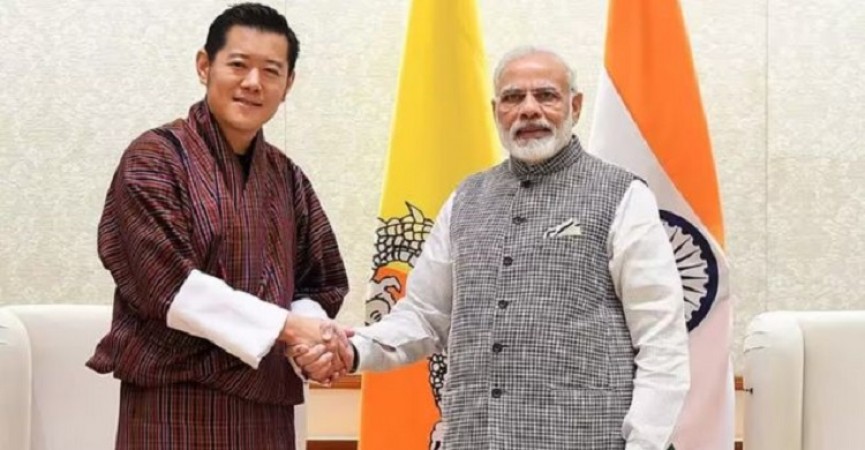
New Delhi: The profound and enduring relationship between India and Bhutan is not merely defined by their shared 699-kilometer border but also by the deep cultural connections that bind them. This unique rapport extends beyond government-level interactions, flourishing through the cultural and social ties that unite the people of both nations.
India's rich tapestry of cultural diversity and its status as the birthplace of several religions that have influenced the broader region cannot be overstated. Buddhism, in particular, has emanated from its Indian roots to find homes in countries like Bhutan, Thailand, Myanmar, and Sri Lanka, where it now boasts the world's largest Buddhist population.
Over the centuries, Buddhism has served as a cultural and civilizational bridge between Bhutan and India, elevating bilateral relations to extraordinary heights. These age-old ties are deeply rooted in shared geography, history, religion, culture, and customs, forging a special bond unlike any other global relationship. Inspired by the principles of 'Madhyama Marg' in Buddhism and 'Vasudhaiva Kutumbakam,' both nations advocate for peace, tolerance, and global prosperity.
In the years to come, India and Bhutan are poised to offer the world a beacon of hope for those grappling with the delicate balance between sustainability and consumerism.
Both governments have undertaken numerous initiatives to strengthen their historic relations through various means. The foundation of this partnership was cemented in 1968 with the establishment of diplomatic ties. It finds its bedrock in the Indo-Bhutan Friendship Treaty of 1949, centered around principles of free trade and commerce, perpetual peace and friendship, and equal justice for both countries' citizens.
Furthermore, with a focus on enhancing people-to-people exchanges in fields such as education, culture, and environmental preservation, India and Bhutan founded the India-Bhutan Foundation in August 2003 during the visit of the current King (then Crown Prince) to India. Both governments contributed INR 10 crore, with an equal share, and the interest generated from this fund is employed for the cultural and educational advancement of both nations.
India has played a vital role in preserving Bhutan's cultural heritage, providing scholarships to numerous Bhutanese students who come to India for higher education at various levels.
Through initiatives like the Nehru Wangchuck Scholarship Scheme in 2010 and the more recent Bhutan ICCR Scholarship Scheme introduced in 2012, a substantial number of Bhutanese students have gained access to quality education in India.
This week, Bhutan's King Jigme Khesar Namgyel Wangchuck embarks on an eight-day visit to India, a journey of great significance. His visit coincides with the backdrop of increasing bilateral relations between Bhutan and China, who are diligently working towards resolving their border dispute. Both neighboring nations are committed to transforming their relations into a legally binding framework while addressing all border issues. The Ministry of External Affairs (MEA) has announced that the King's visit is poised to open up new opportunities and further elevate this "exemplary" partnership.
Bhutan's King Embarks on Official Visit to India, Strengthening Bilateral Ties